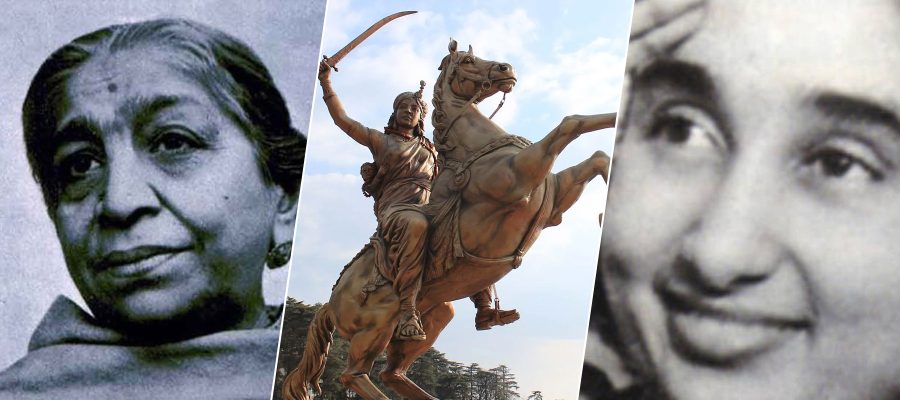As we look back on the momentous day of 15th August today, it is hard to imagine the tidal wave of pride, hope and jubilation that must have swept through a nation the first time the tricolour was unfurled and soared high in 1947. A nation was finally freed from the shackles of colonial rule after a long, hard struggle that stretched over 190 torturous years of resistance and sacrifice. From daring uprisings to nationwide resistance movements, countless unsung heroes, from revolutionaries to peaceful protesters, laid the foundation for the cause of free India. Women played a vital role in this epic journey, leading the charge against stifling British colonial rule with extraordinary valour. Some of them have left an indelible mark on history.
Imagine the dramatic scene as Rani Lakshmi Bai of Jhansi, garbed in warrior attire, led her troops into battle against the British East India Company. Her leadership during the 1857 Revolt, particularly the defense of Jhansi Fort, was marked by strategic brilliance and unwavering resolve. Despite her eventual defeat, her heroic stand has immortalised her as a symbol of resistance. Known as the “Nightingale of India” for her evocative poetry, Sarojini Naidu was also a formidable leader in the Indian freedom struggle. In 1928, Sarojini Naidu took Gandhi’s message of nonviolence to the United States, where she spoke passionately about India’s struggle for freedom. As the first Indian woman president of the Indian National Congress, she played a pivotal role in mobilizing support for the independence movement with her inspiring speeches.
A stalwart in India’s Constituent Assembly, Sucheta Kriplani was a key figure in crafting the foundations of a democratic India. Her role in the Quit India Movement and her leadership as the first female Chief Minister of Uttar Pradesh left an indelible mark on Indian politics. During the Quit India Movement of 1942, she stood out a strong leader with her fiery speeches. A physician and revolutionary, Lakshmi Sahgal was a prominent leader in the Azad Hind Government under Subhash Chandra Bose. Her command of the Rani of Jhansi Regiment of Azad Hind Fauj and her humanitarian efforts during the Bangladesh Liberation War highlight her multifaceted contributions. Her leadership was marked by her acumen of mobilising women soldiers and providing life-saving care amidst the conflict.
Young Usha Mehta defied British authorities through her revolutionary broadcasts on Congress Radio. Her clandestine radio broadcasts during the Quit India Movement were instrumental in spreading revolutionary messages and sustaining the spirit of resistance against British rule. Her early activism against the Simon Commission and her daring efforts in the underground resistance made her a significant figure in the independence movement. She was awarded the Padma Vibhushan for her contributions. As President of the Youth Congress, Kamaladevi Chattopadhyay was a dynamic force in the independence struggle. Her passionate appeal for Poorna Swaraj and dramatic stand to protect the national flag during violent protests demonstrate her fearless dedication to the cause. She tirelessly advocated women’s rights and social reform through her work at the All India Women’s Conference.
Fearless, formidable, and fierce, these women shattered societal norms and rewrote the rules, forging their own path to independence even before the nation was liberated.

